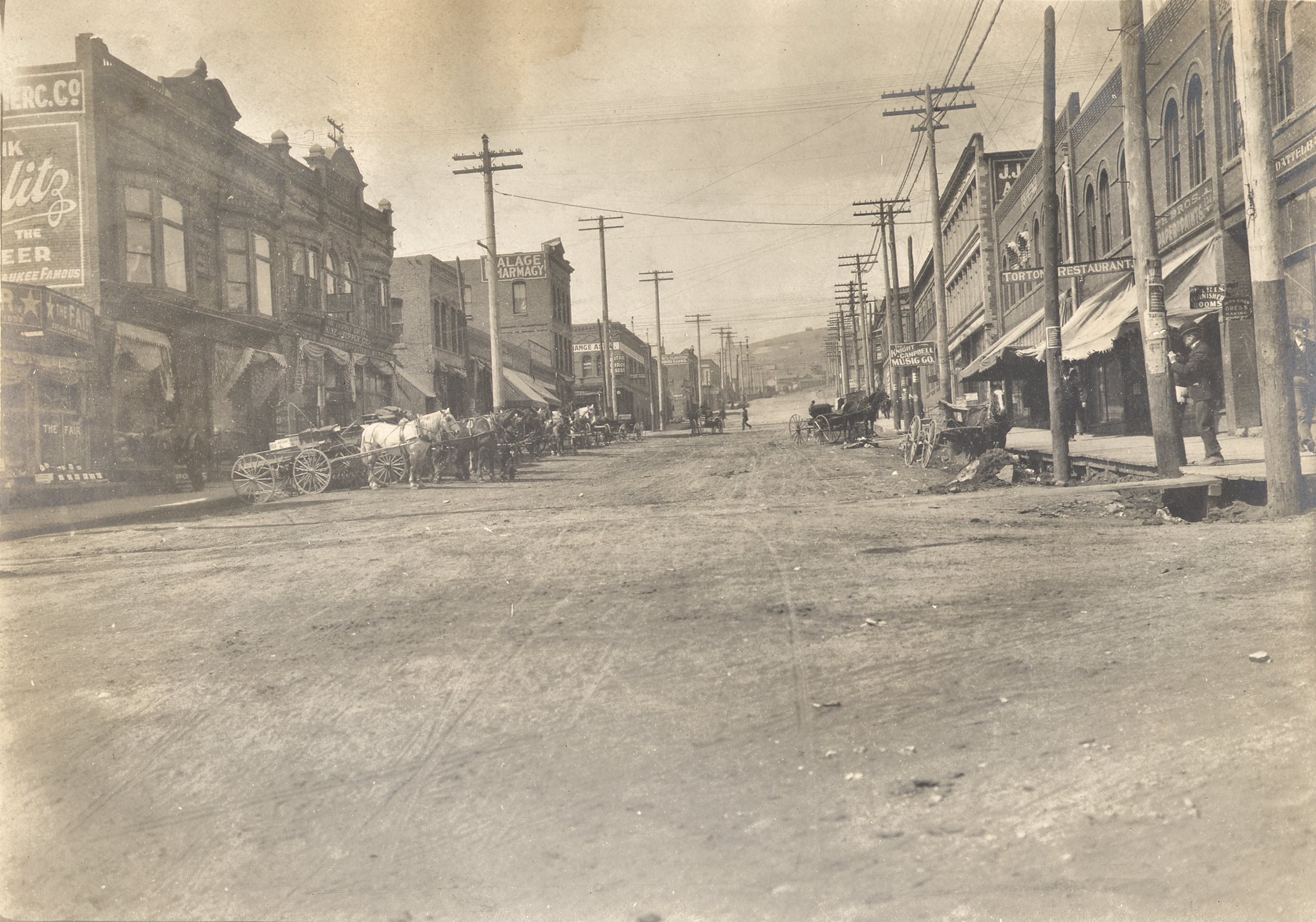-> Found at the Colorado Historic Newspaper site. Or direct to the text.
Sunday Morning, December 31, 1899.
(page 16, or numbered 12)
Source had no images, so I used some images from my collection.
WHICH IS AS SOLID AS A ROCK.
When the Cripple Creek Mining Stock Exchange was started March 13 last, it was predicted by a few that the institution would have but a meteoric existence. Their predictions were wrong, as the records of the exchange show.
The exchange is not out of its swaddling clothes, but it is doing more business to-day than the exchange of Denver, where there is a population of 150,000 to draw on. In comparison to the exchange at Colorado Springs, it is very often half as much. The exchange is solid and stable and the citizens of the city point to it with pride, for it is conducted on business principles and the men at the helm are of such integrity that they take great pride in it.
The directors of the exchange are Edward Bell, Charles N. Miller, F. R. Berbower, John F. Vardaman, Curtis J. Smith, H. L. Shepherd, W. A. Delany, W. W. Kirby.
The officers are T. P. Airheart, president; W. W. Kirby, secretary and B. Berbower, manager of the clearing house. The very names of these gentlemen are enough to inspire confidence.
So great has the volume of business been here that most of the big brokerage firms of Colorado Springs have opened offices here, rather than lose a certain amount of business. Easterners visiting the district have not been slow to recognize the fact that Cripple Creek, being the seat of the great producers of gold, was necessarily the center of stock business and more than one has left his money with the brokers of the city, knowing that the man on the ground would naturally have the first information concerning new strikes and thus he would be benefitted most.
There are in the city many brokers that can draw for thousands of dollars on eastern clients at any time and there is on deposit in the banks here to the credit of brokers thousands of dollars to invest as they see fit.
The year just closed has been a prosperous one for both the broker and the speculator. The brokers of the city do a strictly commission business. The brokers of the city are among the shrewdest to be found anywhere in the state. Each succeeding week of the exchange has seen an increase until the time of the slump.
A comparison of the prices of stocks sold the first day the exchange started and now is not out of place and it alone will show the money that has been made by investors since last March. The exchange opened March 13. The first sale was 1,000 shares of Acacia, sold by Charles N. Miller to John. P. Kerin, the price paid being 10½ cents a share. Since that time Acacia has sold as high as 52 cents a share.
The first day's business of the exchange was heavy for a starter. The total sales were 96,500 shares of stock, the value of it all amounting to $2,870.37.

A View of a Large Crowd of People Outside the Cripple Creek Stock Exchange Building in Cripple Creek
The cash value of the stocks sold for March was $54,813.37 and the total number of shares was 1,196,900.
Last March Gold Sovereign was selling around 4⅞ cents; since then it has sold up to 20 cents. Pinnacle, that was down to 11⅜ cents has gone above 30 cents. Bull Hill and Straub Mountain was hovering around 3½ cents, last month it sold as high as 19 cents. C. C. and M. went begging at 3½ cents, but since that time it has been hard to buy at 20 cents. Gould had very few buyers at 9½ cents, now one has to pay above 30 cents a share for it. A. C. C. and C. could all be bought for $6.50 per thousand shares, but only recently a control of the stock was quoted at over 4 cents. Pappoose you could buy in any quantity at 2⅞ cents, now one would be lucky to get it at around 12 cents. Elkton was a buy at $1 a share, now you must pay $1.17 a share. Damon was down around 9⅜ cents, now it is hovering around 30 cents a share. Isabella was selling around the 89 cent mark and lately, as every one knows, it is way above $1 a share, and so on through the list, the above being but a few noted instances of remarkable increase.

